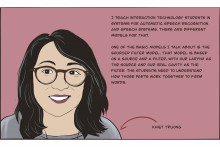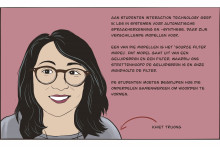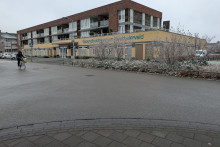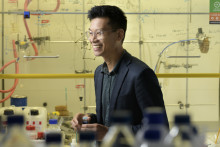‘The focus of the project is a coaching system for elderly people still living at home. The system will include virtual agents that give the user various advice. Most importantly, there will be a whole number of virtual characters that take on different roles and are specialized in a specific domain, such as physical activities or mental health,’ explains Prof. Dirk Heylen from the HMI group, who is one of the main UT researchers involved in COUCH, alongside the project coordinator Prof. Hermie Hermens from the Telemedicine group and Oresti Banos from the Biomedical Signal and Systems group.
Virtual characters talking to each other
Once the ‘Council of Coaches’ is finished, the resulting system will consist of a number of virtual characters that interact not only with the user, but also among each other. Their main goal will then be to inform the user about health and well-being related issues and motivate them to pursue a healthy lifestyle.
The Council of Coaches will target mainly older adults suffering from age-related problems, especially diabetes type 2 and chronic pain. The virtual coaches will initiate discussions on healthy behavior, focusing on the user’s own habits. The entire service is meant to be highly personal, and so the user can also adjust the members of their ‘council’. For example, if they wish to lose weight, a diet coach may be added.
Involved partners
The UT’s Centre for Monitoring and Coaching will be the coordinating partner of the COUCH project. ‘The project also strengthens the UT’s collaboration with Roessingh Research and Development (RRD) on the topic of monitoring and coaching systems,’ points out Heylen. ‘Besides the University of Twente and RRD, five international partners are involved: The Danish Board of Technology Foundation, Université Pierre et Marie Curie in Paris, University of Dundee, Universitat Politècnica de València and Innovation Sprint from Belgium.’








